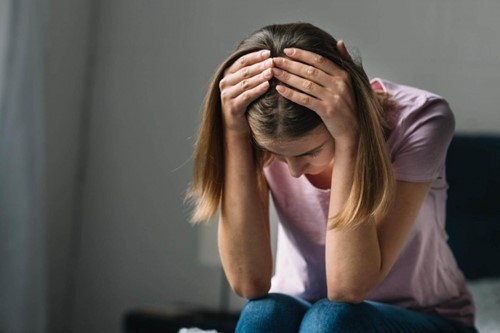At a time where everyone’s lives have been flipped upside down due to the lockdown in response to COVID-19, it’s not been easy to adapt and some people have found it extremely difficult. For those suffering with an eating disorder, the impact of the coronavirus lockdown could be particularly detrimental.
For people suffering with an eating disorder, the mental illness may stem from psychological needs such as control instead of the actual food itself. Ulrike Schmidt, a professor of eating disorders, explained in a recent interview how E.D.s are very much stress related conditions. So it isn’t surprising that the uncertainty of the current situation, the lack of distraction from negative internal thoughts and fears, and the lack of structure could be triggering for someone with eating disorder.
Another impact that COVID-19 has had specifically on those with anorexia nervosa, is that they haven’t been able to purchase the exact food they usually do because of low stock in the supermarkets and the difficulty getting food deliveries until very recently. People with anorexia are really anxious about the type of food they consume, so tend to stick to a limited range. If the products they usually feel safe eating are not available, it can be highly distressing and they may end up not eating that meal at all.
Many people with eating disorders might attend therapy or go to support groups to help them in their recovery. Organisations have adapted quickly to the coronavirus lockdown, using Zoom, Teams, FaceTime, Skype and other virtual ways to connect with service users, Breathe Therapies and SEED Lancashire included. Most therapy and support group services are now held online, which is beneficial for some as they are easier to access. However, it also makes it easier for a reluctant individual not to go or not to engage, as the sense of accountability is reduced and some feel that the human element won’t be there. People can still find support, but may need extra encouragement to get in touch if they’re struggling.
Eating disorder not-for-profits and charities have also been greatly impacted by the COVID-19 lockdown, as they haven’t been able to fundraise for months due to social distancing and reduced staff. Unfortunately, this means that the funding isn’t there to enable them to continue providing the services just mentioned. The national charity for eating disorders, Beat, recently stated that calls on their helpline have increased by 30% since lockdown commenced. Without the usual number of staff and with a decrease in funding, the organisation is struggling to keep up with the demand. But like every other mental health and eating disorder organisation, we all know that if we can’t provide the support and help people need, the consequences for many sufferers, will be severe.
If you are suffering from an eating disorder and looking for help book a FREE consultation with the Breathe Therapies team, or call us on 01772 915 735






















